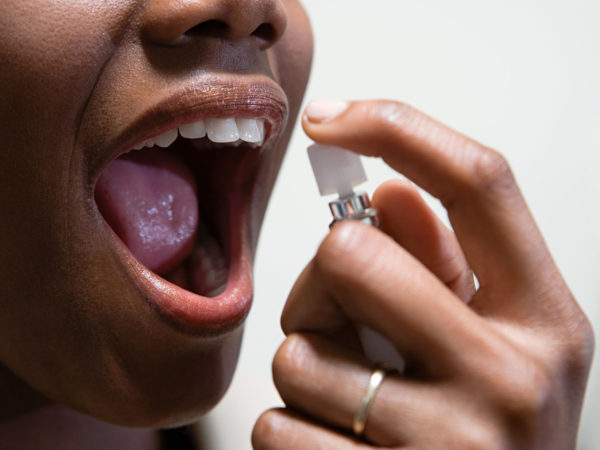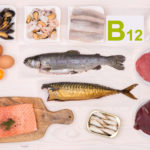Best Way To Get B12?
I’m 59 and am trying to get more vitamin B12. I’ve been eating more meat, but I don’t know which kind of supplement would be best for me, a tablet or a spray. What do you recommend?
Andrew Weil, M.D. | October 18, 2024

Vitamin B12, also known as cyanocobalamin, is a water-soluble vitamin that is part of the B complex. It helps support adrenal function and maintain a healthy nervous system. It may also help prevent hearing loss and cognitive decline by increasing blood flow to the inner ear and brain. B12 is particularly important for seniors, because as we age, our bodies become less efficient at absorbing it from foods we eat, often leading to deficiency. According to the U.S. Centers for Disease Control and Prevention, unpublished data from the National Health and Nutrition Examination Survey 2001-2004 suggest that one out of every 31 adults 51 years of age or older in the United States will have a low serum vitamin B12 leve1. Most of these people have no symptoms. Another study found that 5.3 percent of non-institutionalized adults 67 through 96 years of age had low serum vitamin B12 levels.
Seniors aren’t the only ones at risk. Because all dietary B12 comes from animal-based foods (meat, fish, eggs and dairy products), vegetarians can easily develop deficiencies, especially vegan children if they don’t eat grains fortified with B12 or take a vitamin supplement. Pregnant women and those who suffer from gastrointestinal disorders are also at higher risk. Vitamin B12 depletion also occurs in those who drink alcohol to excess, as well as in some patients on long-term antibiotic therapy. Certain prescribed drugs including stomach-acid-suppressants (H-2 blockers and proton pump inhibitors) and the diabetes drug metformin can contribute to B12 deficiencies. Nicotine can also lower serum levels. In addition, people who have had weight loss surgery can become deficient because the operation affects the body’s ability to obtain the vitamin from food.
Symptoms of B12 deficiency include numbness or tingling in the hands, legs, or feet; difficulty walking (staggering, balance problems); anemia; a swollen, inflamed tongue; yellowed skin (jaundice); difficulty thinking and reasoning (cognitive impairment) or memory loss; paranoia or hallucinations; weakness; fatigue. Symptoms can come on gradually and may not be noticed until they become more intense; they may also appear suddenly.
The Recommended Dietary Allowance (RDA) for B12 for people age 14 and older is 2.4 mcg a day; for adult and adolescent pregnant females, 2.6 mcg; and for adult and adolescent lactating women, 2.8 mcg. Individuals over 50 years of age should consume vitamin B12-fortified foods, or take a vitamin B12 supplement. I recommend taking 50 mcg of B12 as part of a B-complex that contains a full spectrum of B vitamins, including biotin, thiamin, riboflavin and niacin.
Both tablets and sprays are effective ways to get B12, but for those who are concerned about an actual deficiency as well as for people over 50, I recommend the oral sprays for better absorption.
Andrew Weil, M.D.
Sources
“Vitamin B12 Deficiency Can Be Sneaky, Harmful”, Harvard Health Blog, accessed November 19, 2013, http://www.health.harvard.edu/blog/vitamin-b12-deficiency-can-be-sneaky-harmful-201301105780
“Natural History and Prevalence of Vitamin B12 Deficiency,” U.S. Centers for Disease Control and Prevention, accessed November 19, 2013, http://www.cdc.gov/ncbddd/b12/history.html
Originally Posted January 2014. Updated October 2024.












